Why this ex-teacher’s handmade bags spark a frenzy every month and sell out within minutes
The magic of Tey Pei Hwa’s handcrafted kiss-lock bags, known as gamaguchis, lies not just in the design and fabric but in the passion behind each Rags to Peaches creation. It’s a story of her fascination for gamaguchis, grief after pregnancy loss, and love for her children stitched into her work.
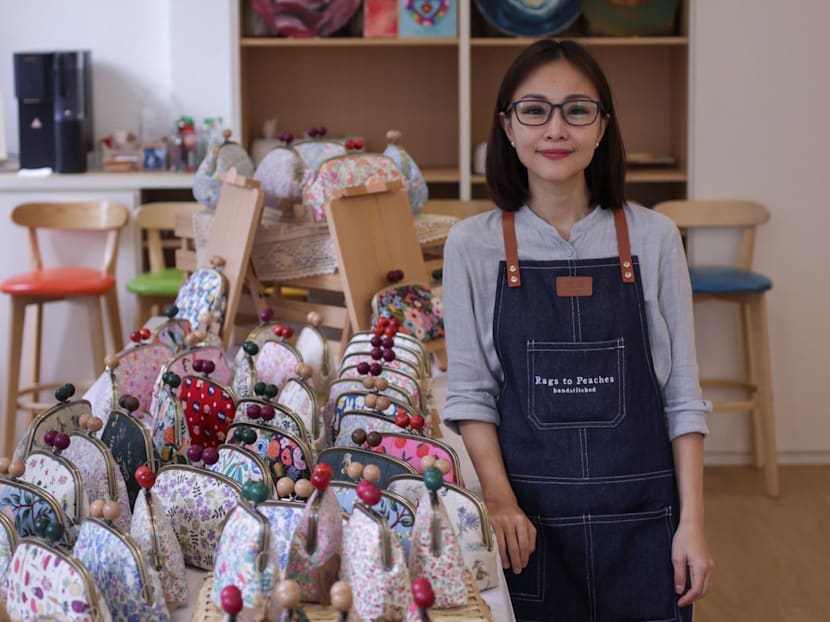
Tey Pei Hwa is the founder of homegrown, handmade gamaguchi brand Rags to Peaches. (Photo: Rags to Peaches)

This audio is generated by an AI tool.
Her bags typically sell out within 10 to 15 minutes each month. Once, they were even snapped up in three minutes. Shoppers who were a tad too slow to check out lost their cart.
Meet Tey Pei Hwa, founder and solopreneur of homegrown kiss-lock bag brand Rags to Peaches.
She is neither a hotshot designer nor a luxury brand owner. She has no marketing budget or factory labour.
Every month, the 39-year-old simply shuts herself in her small studio making 40 to 50 of these bags, known as gamaguchis. Every cut and every stitch is made by her.
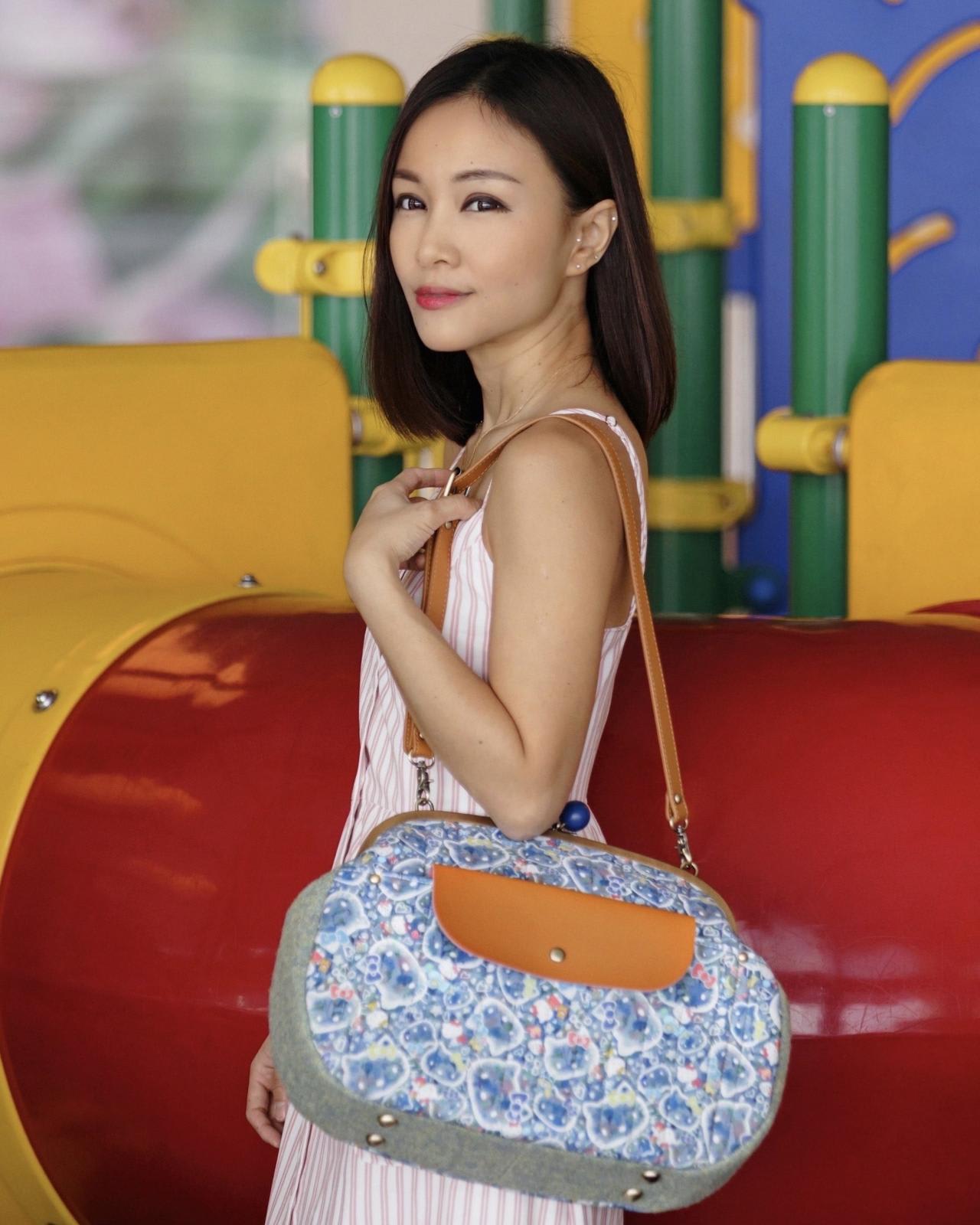
Don’t expect a discounted clearance sale for this bag brand. Every Rags to Peaches bag has sold out since Tey started making them in 2020. Customers even write lengthy messages telling her how her bags “spark joy” and help them get through tough seasons in their lives.
A KISS-LOCK LOVE STORY
It all began when Tey chanced upon an unobtrusive gamaguchi shop in the Higashiyama district of Kyoto, Japan, during her travels, in 2012.
“Everything was so pretty and elegant I felt like I struck a gold mine,” she told CNA Women.
“There is magic in the simplicity of gamaguchis – you don’t need anything to secure it, just a clasp. I thought to myself: One day, I want to sew this.”
Then an English Literature teacher, Tey returned to the shop every year to buy gamaguchis – it became the only bag she ever carried. She bought 20 from the shop over the years.
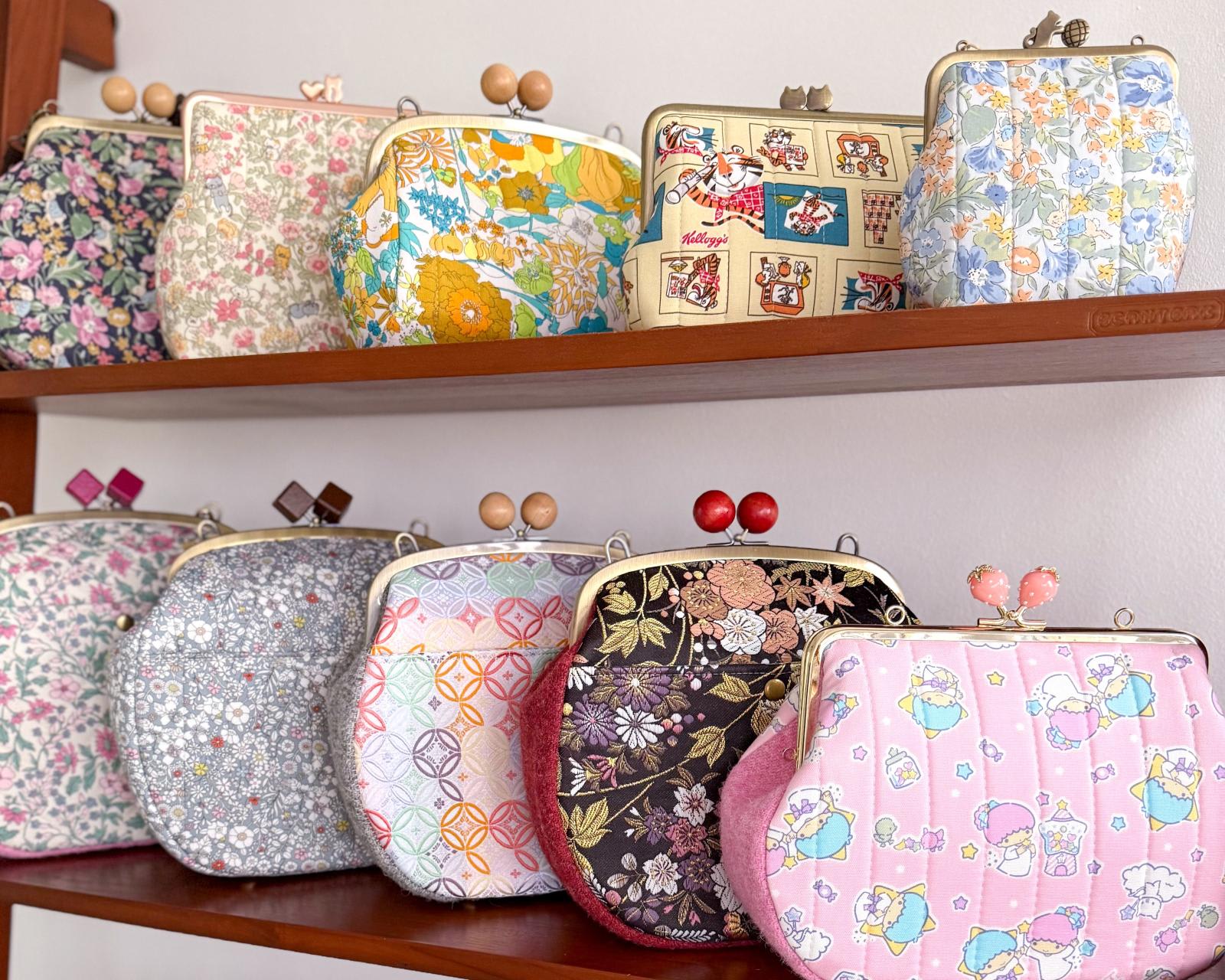
During her "annual pilgrimages" to Kyoto, Tey also developed an obsession with the beautiful fabrics there and collected them for more than a decade. Starting with cute animal prints of Shiba Inus and cats, she moved on to florals and silk kimono brocades.
Tey said her love for fabrics may have been inspired by her parents, who were tailors for a few years when she was a child.
“I remember sitting by the old Singer sewing machine and watching them sew. I loved feeling the fabrics in my hands and was very fascinated by how something so simple could become a garment,” she said.

Tey got married in 2016. In 2017, her husband went to London on a scholarship to pursue a master’s degree, and Tey took a one-year sabbatical to join him.
Inspired by her love for gamaguchis and fabrics, she took up a full-time sewing course there, and began selling small items she made, such as key fobs, fabric trays, pet collars and small tote bags, on Instagram.
In 2018, shortly after returning to Singapore, she discovered she was pregnant. As she sat in a cafe contemplating this new chapter of her life, she wondered if teaching would be a good fit for motherhood – the long hours left little room for work-life balance.
“Besides helping students score academically, as a teacher, you are the admin manager, counsellor, guardian, and for some children who come from dysfunctional families, you are the proxy parent,” she explained.

Wanting to be more present for her son, Tey resigned in 2019. She then started learning how to make gamaguchis from a teacher she found in Singapore, and also by trial and error.
In 2020, she took a leap of faith, made her first batch of 15 gamaguchis and sold them through her Instagram account. The bags sold out – and have sold out ever since. She markets her business on her Instagram account, @ragstopeaches, which has close to 11,000 followers.
THE MAGIC OF GAMAGUCHIS
To make a gamaguchi, Tey begins by sketching a pattern to fit her chosen metal frame, whether oblong, rectangle or square. Sometimes, she quilts the fabric for more structure and texture.
From there, she cuts, irons and stitches the pieces together to form the bag body before fitting and securing it into a metal frame.
“Gamaguchis are very unforgiving – 1cm off, and the whole thing is thrown out of whack,” said Tey.
“The framing has to be done by hand. Because glue is used, you have to frame the fabric before the glue dries. Inside the frame, there is a hidden paper rope that binds with the glue to hold the fabric in place. If you don’t frame it properly, it comes out and is very ugly,” she explained.
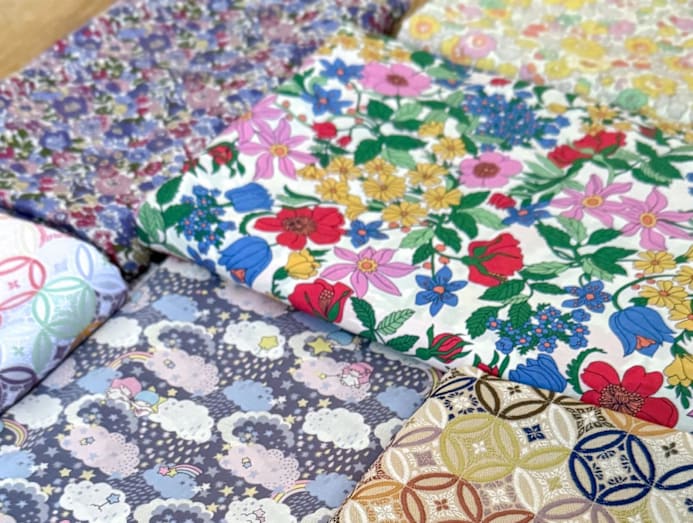
Tey’s son is now six and she also has a three-year-old daughter. She works from 7am to 4.30pm on weekdays, then picks up her children from preschool. Some weekends, she returns to her studio in Tai Seng when her children are napping.
Product prices range from around S$80 for a small pouch to S$295 for a large bag, and although they always sell out, Tey said she makes less than she used to as a teacher because gamaguchis are labour-intensive. She cannot make more than 40-50 bags monthly – and good fabric is expensive, especially without economies of scale.
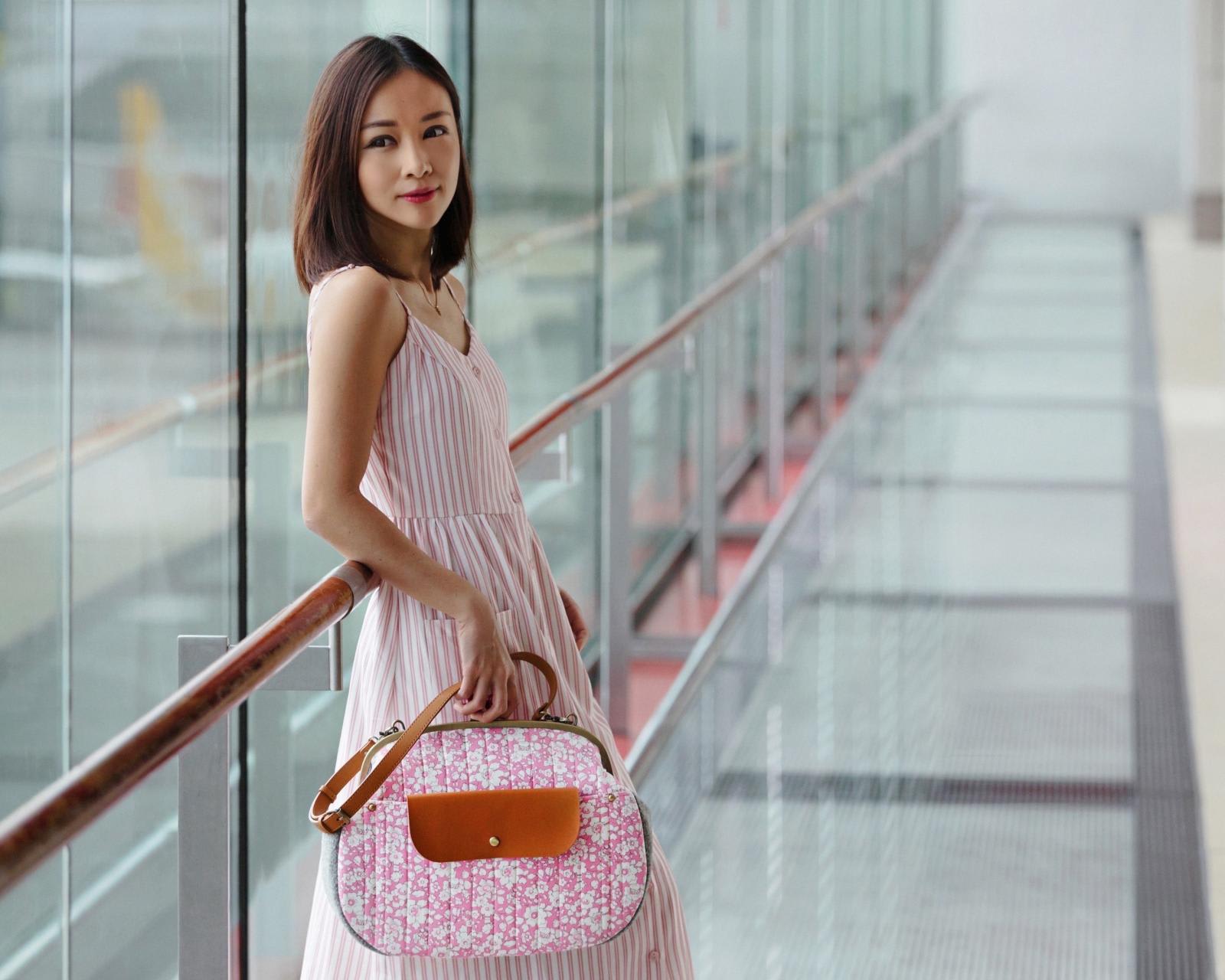
Tey acknowledged that she could get a laser cutting machine to cut fabric quicker and make more bags but she is resistant to the idea.
“I feel that it’s very charming to know that the product is completely made by hand. People can sense that when they hold the bag in their hands – that kind of human connection, the signature and thumbprint of the maker all over the bag. I think that’s what’s needed in today’s world of fast, disposable fashion,” Tey said.
“It also makes the brand more special and authentic because you know the face behind the brand. You’re not just paying some faceless person working in a very stuffy sweatshop,” she added.
WEAVING IN HER FAMILY STORY
The devoted mother is grateful that solopreneurship allows her to sync her rest time with her kids’, and be fully present for them. She also hopes her journey will inspire them.
“My son calls me a bag cobbler,” she laughed. “I think it is important to show my children that Mama is doing something different, she’s going against the grain. There are alternative pathways to success.
“We may not be very rich, but we are rich in other aspects. It’s about having something to look forward to when you wake up, having purpose and not sleepwalking through life,” she said.
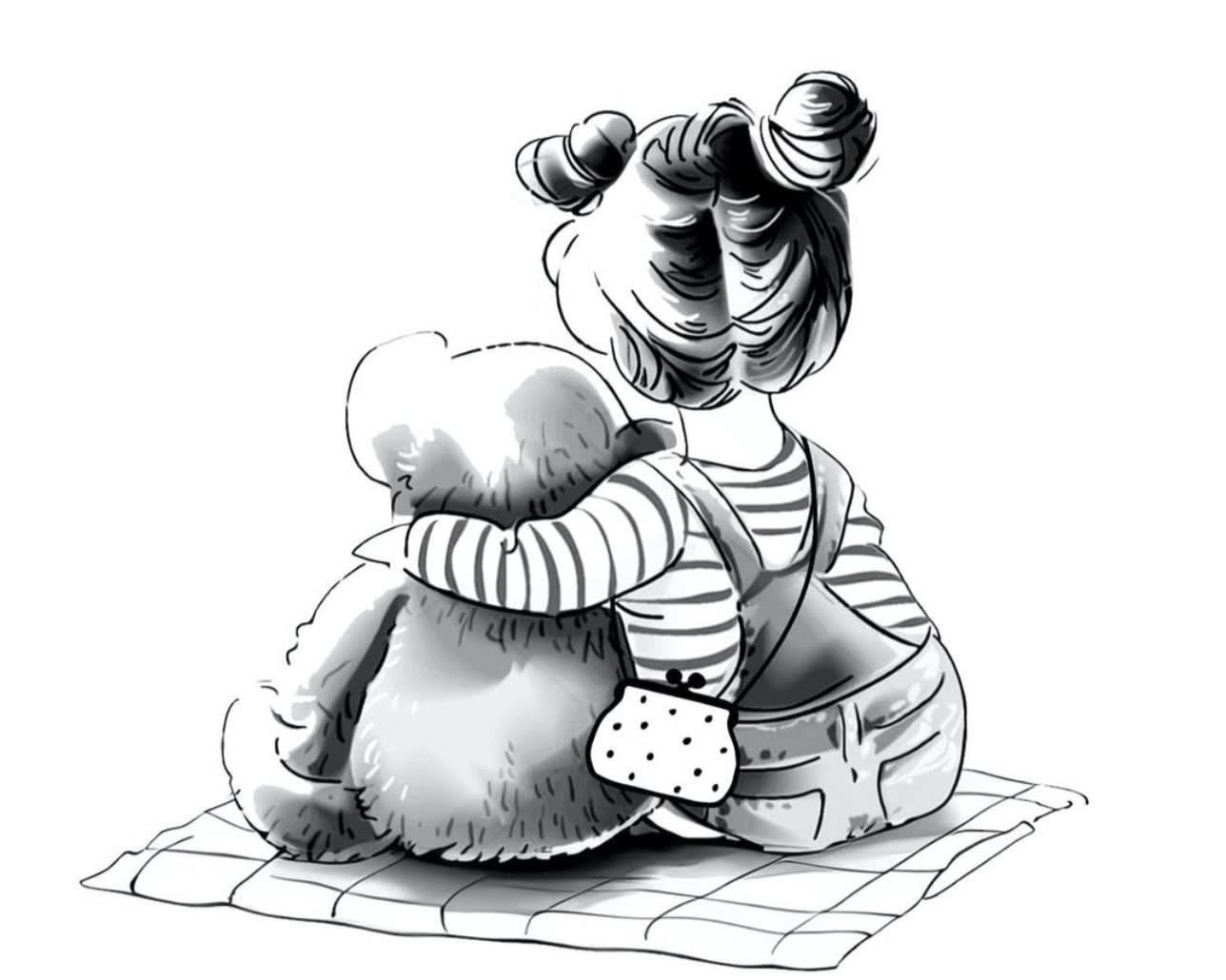
Rags to Peaches’ logo honours the memory of a baby Tey lost in 2022, five months into her pregnancy, due to congenital heart and brain conditions. The logo features a little girl with two ponytails with a bear and a tiny gamaguchi, looking into the distance.
Speaking about the loss, Tey said: “It was the most difficult Chinese New Year ever. You have these tanks of love that you want to shower for this person, but that person never came to be. That love has nowhere to go. That anticipation, that excitement of welcoming a child becomes grief.
“I really wanted something to remember her by. I didn’t want her to be a distant memory, a thing of the past.
“Now, each time I sit in my studio and look at my logo, I am reminded of her. I know she is near. And when I hang the tags on the bags, she’s immortalised, in a sense. She has entered the lives of so many people without their knowing. Her memory lives on,” Tey added.
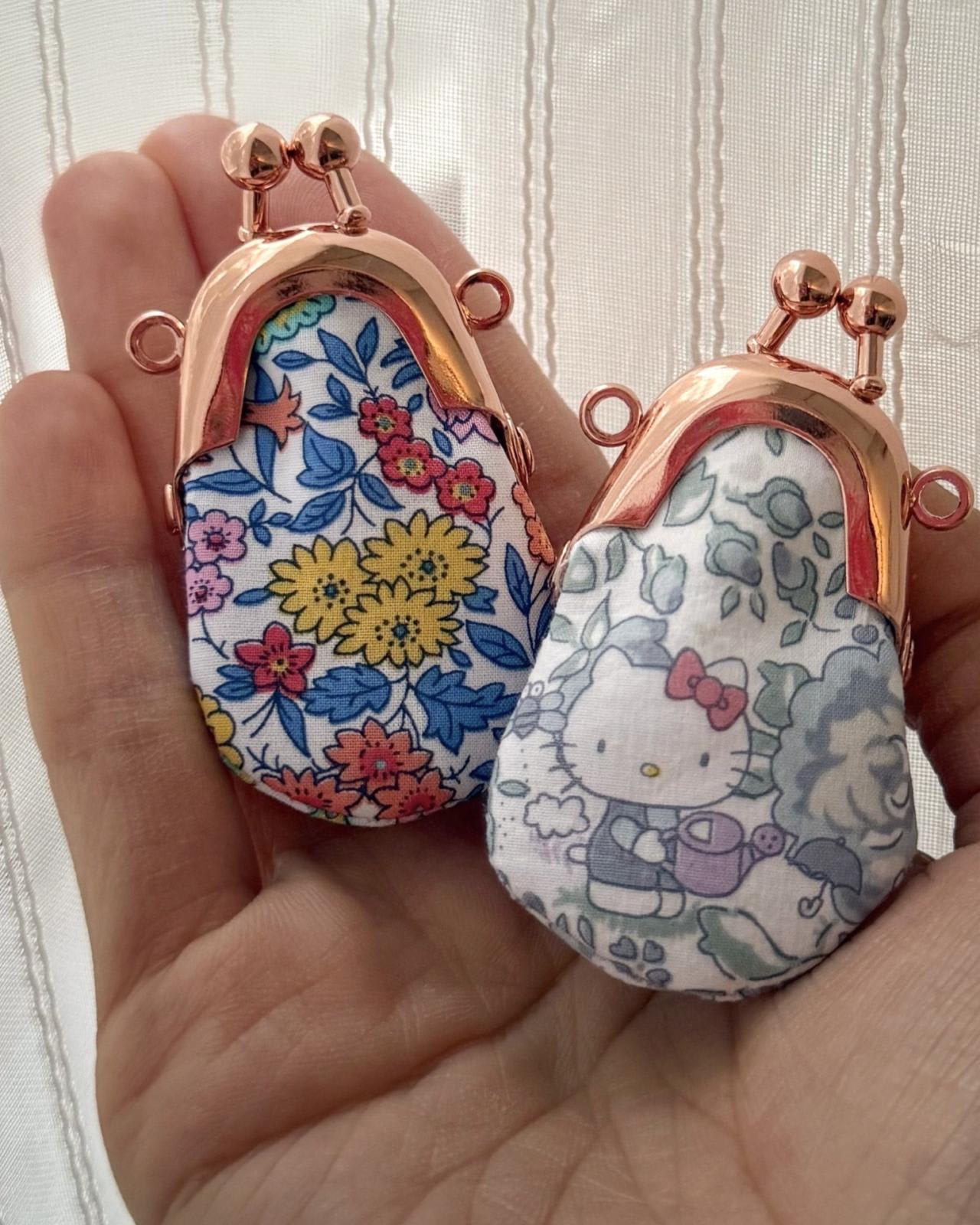
“When I was pregnant, and knew she was going to be a girl, I was so happy,” Tey reminisced. “I couldn’t wait to sew little gamaguchis for her. I sewed five, in total. The smallest one could probably only fit one coin.
“Sometimes when I sew now, I think about how these are the bags that were never meant to be,” she said wistfully.
“But it’s okay,” she added quietly. “Because now when someone tells me they are buying a gamaguchi for their daughter, I feel very happy and comforted that at least someone else can get to gift this to their daughter.”
CNA Women is a section on CNA Lifestyle that seeks to inform, empower and inspire the modern woman. If you have women-related news, issues and ideas to share with us, email CNAWomen [at] mediacorp.com.sg.






